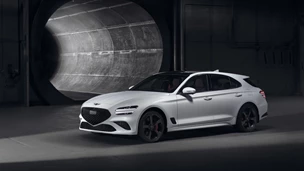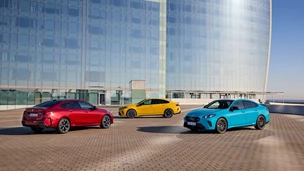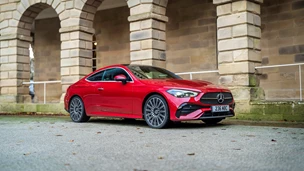Volkswagen quite rightly gets the credit for introducing both the name and the concept of the GTi to the motoring world when it created the high-performance version of the Mk I Golf back in the mid-1970s. It was arguably Peugeot, however, which pushed the whole business to a different level some years later with the introduction of the original 205 GTi.Since then, whatever the merits of the individual cars to bear the name, Peugeot GTis have almost invariably been not only the hottest models in their respective ranges, but the hottest that they could possibly be expected to be. The three letters are well chosen, for example, in the current 180 version of the 206, a car which feels as if it has about as much power as anyone would want to deal with on the road.There has been a lot of discussion about whether the car tested here, Peugeot's first "diesel hot hatch", should also be called a GTi. It is certainly the quickest of the diesel 206s, no argument about that - but it quite definitely isn't the quickest diesel 206 that could be imagined.In a world which already contains very fast two-litre turbo diesel variants of cars like the SEAT Ibiza, Skoda Fabia and Volkswagen Polo (all of them closely related, of course, which tells you something about German attitudes to the matter), Peugeot has chosen to fit the 206 with the 1598cc 110bhp diesel unit rather than the larger 136bhp one. There are carefully-argued reasons for this, which we'll come to shortly, but the result is that this car does not feel quite like a GTi in the way that Peugeot has spent decades persuading us to understand the term.The first time you drive one, the car feels quick, thanks to the enormous mid-range power with which turbo diesels make their petrol-fuelled equivalents feel silly by comparison. It goes on being quick, too, but you need to work at this, revving the engine to 5000rpm to get an effect similar to the one the SEAT, Skoda and Volkswagen produce if you change up a gear at half that speed. For that reason, when you're pushing it on, the 206 feels about halfway between those cars and a petrol hot hatch.This relative lack of engine strength has allowed Peugeot to go for a completely different suspension set-up than was chosen for the GTi 180, and on balance this is a good thing. The 180 is a fierce little customer with an uncompromising ride and pin-sharp handling. The diesel is much softer, but the softness is very well controlled. Ride quality is superb, and at the same time the car is very easy to drive quickly along challenging roads, without a hint of the wallow or uncertainty found to a ludicrous degree in the Fabia. For the first half hour, the 180 is more fun, but by the end of a day behind the wheel I'd be much more enthusiastic about holding on to the keys of the diesel.All the same, I'd love to see what Peugeot could do with a 136bhp version of the 206. The official line is that there won't be one. The two-litre engine has a steel rather than an alloy block and is therefore much heavier, which would cause havoc with the balance of such a small car. You'd also want to use the six-speed gearbox, a very large piece of kit that reduces steering lock and - as in the 180 - creates a much larger turning circle.Personally, I don't know that the six-speed is necessary. One of the great advantages of turbo diesels is that they have a very wide torque range, so you don't need the ratios to be particularly close. The five-speed is probably a better bet, in technical terms if not marketing ones.I do agree that you wouldn't want a stonking great steel-block engine under the bonnet, but Peugeot points out that - since tuning turbo diesels is quite a simple matter - you could bring the power output of the 1.6 up to 136bhp or thereabouts just by changing the characteristics of the ECU, so you'd get all the power and lose none of the balance.If Peugeot did this, and stuck with the relatively soft suspension set-up rather than the roller-skate one found on the 180, I believe that the company would indeed have created a true diesel hot hatch. The problem then would be, of course, having already used the GTi label for a car that doesn't quite deserve it, what would the new model be called? Engine 1560cc, 4 cylinders Power 110bhp Transmission 5-speed manual Fuel/CO2 58.9mpg / 126g/km Acceleration 0-62mph: 9.8 seconds Top speed 118mph Price £13,770 Release date 15/05/2010

Our Rating



